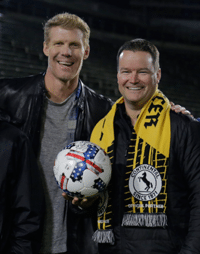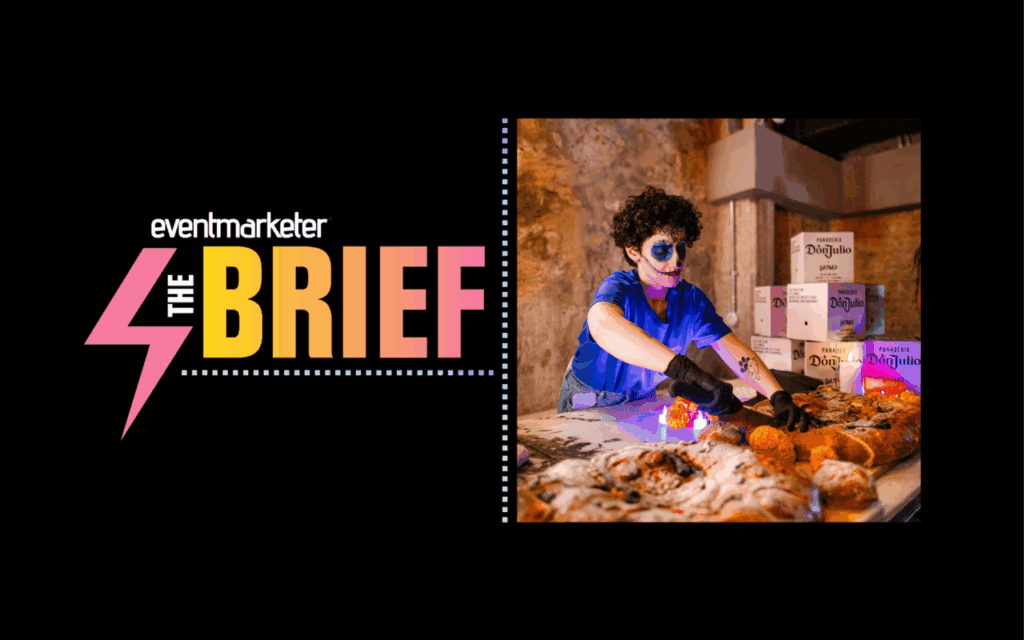This is the third article in a series of Q&As with leading marketers about their sports marketing initiatives.
The massive growth of Major League Soccer has attracted top corporate sponsors—Target, Coca-Cola, Audi, Heineken—that are all reaping the benefits of the growing base of passionate fans and matches.
Continental Tire is riding the wave by extending its official tire sponsorship to encompass every MLS team, and of U.S. Soccer overall, after becoming a league sponsor in 2010.
This year marks MLS’s 22nd season, which kicked off earlier this month. Starting with 10 teams, MLS now has 22 teams and will expand to 28 by 2020. Teams 25 and 26 will be announced during Q2 or Q3 this year.
With such rapid growth, the Continental Tire MLS Sponsorship is using a multichannel approach to engage consumers with integrations across broadcast, digital, video, in-stadium and on-site activation. The campaign, “Ode To Soccer,” was built to celebrate the unique nature of soccer culture, giving a nod to what makes the game distinctive both on and off the field. Continental also released two new commercials starring soccer legend Alexi Lalas.
A key aspect to Continental’s engagement with consumers on-site at MLS matches is giving away team-branded scarves. To receive one of the coveted scarves, fans fill out a registration card, interact with the tires on-site and take a short quiz about tires.
Evan Vladem, a sports marketing and sponsorship expert at rEvolution, sat down with Travis Roffler, head of marketing at Continental Tire, to discuss the growth of Major League Soccer, the impact on the Continental Tire MLS Sponsorship extension and activations with the league, as well as the future of the sport in America.

VLADEM: MLS is fresh into the 2017 season and Continental has officially extended a deal with the league and U.S. Soccer. Why is MLS, and soccer in America, such a pivotal platform for Continental?
ROFFLER: Globally, we have been involved with soccer for almost 20 years now and we have been with MLS since 2010. It’s a footprint that fits really well. When we first came in, it made sense but it wasn’t as big as it is today. We think we have at least assisted in that growth and have enjoyed the progress of MLS heading into our seventh year.
VLADEM: In your study of soccer and MLS, what is the level of engagement compared to the other sports you’re involved with?
ROFFLER: Soccer is definitely a different breed. Soccer fans aren’t considered fans, they are considered supporters. They come out, beat their drums, waive their flags, wear their scarves, have marches to the field with bands along with them and do all kinds of crazy stuff. They are really unique and we love that about the sport. Globally, soccer is the largest attended sport. The U.S. has been a little behind but is catching up at a really fast pace.
VLADEM: Since being involved with MLS, what types of increases in engagement are you seeing?
ROFFLER: When you look at the finite impressions, engagement, how we touch the fan base, the amount of times they are exposed to the brand over a period of time has dramatically increased. More teams have come on board and the television package has evolved into much better broadcast times. Now there are even rivalry games.
VLADEM: Over the last several years, MLS has also added major corporate sponsors. In your mind, is the league cluttered?
ROFFLER: As bigger brands come in, I would say yes, but MLS does a great job at only allocating so much space. If you look at soccer around the world, you see tiered field boards, there’s not only one tier but one, two or sometimes three in stadiums. MLS keeps the field very clean with digital boards across the back and into the corners and fixed boards behind the goals. The field is uncluttered from that perspective. With the rotating digital signage in MLS, it allows each brand to get their time with exposure with each stadium across the country. Having big names like Target, Heineken and Audi come on board as partners along with us, only elevates the brands that are involved to the next level.
VLADEM: Media is huge, but in soccer commercial breaks are extremely limited. The reason is to not interrupt the natural flow of the game with stoppages. You have commercials that run pre-game, during halftime and postgame. Is the lack of commercial breaks a negative for brands?
ROFFLER: For a fan of the classic American sports (such as basketball, football and baseball), everybody experiences the aggravation of commercial breaks. As more and more Americans get exposed to soccer, I think they are surprised that there are no breaks and the clock never actually stops. The fans can see that and I think that elevates the excitement of the game.
Our new TV commercial debuting now revolves around two 45 minute, non-stop halves with soccer legend Alexi Lalas. There are no breaks, there are no time outs. From that perspective, a lot of Americans familiar with traditional stick and ball sports, may tune into a soccer game and be pleasantly surprised.
We have spots in every game, when they do go to breaks. We do get our messaging across when it does cut to break at pregame, half or postgame.
VLADEM: Why is it so important for brands, especially in soccer, to speak authentically to the audience?
ROFFLER: Anybody can come into the sport and buy field boards and television commercials. That’s easy to do and doesn’t take a skill set. We try to insert the brand, holistically, into the entire league with all facets. We try to engage the fans and the players too.
When you shoot commercial spots as a league partner, you have to be a little cautious. With soccer fans and supporters, it can be very polarizing if you pick a particular player from a particular team, it could actually work against you. That’s why we ultimately went with Alexi as a neutral FOX commentator and former player. Everybody knows him from the old days of World Cup. He brings a neutrality to our brand. He adds credibility in communicating our messaging. And there is no product in either of the two spots.
We’re not the ones who just buy TV space and field boards, we want to be integrated in the hierarchy of soccer itself and make ourselves part of the game.
VLADEM: How important is it to be activating on-site as well at these MLS games?
ROFFLER: Like every good marketer, we do sponsorship studies. It’s one thing for fans to be aware, but when we engage with the fans on-site at our activation zone at the stadium, the propensity of those folks to be higher in awareness, perception and intent to purchase and in purchase and recommendation to purchase, walking them all the way through the sales funnel, they are 100% more apt to buy the product than the average consumer.
We try to create an activation that helps them learn something about soccer and something about tires. When we actually engage MLS fans, on a personal level, on-site, their propensity to buy our product goes up five or six fold. It’s not up a few percentages. It’s huge and really shows. I understand it’s expensive for marketers to engage with consumers on-site, but when you engage in a relevant manner, which we work very hard to do, our reward is loyalty and purchase.
VLADEM: The league is rapidly expanding. How much room for growth does MLS and soccer really have in the U.S.?
ROFFLER: Ownership in other American sports are interested in ownership. Arthur Blank in Atlanta is a good example. Every NFL city could support an MLS team. To me, 32 teams wouldn’t be outrageous. That’s a logical place for MLS to end up. But I think 28 teams is a good place for MLS to operate for a number of years. We’re excited to have those four additional teams.
Twenty-eight teams is a big undertaking. We have to get there and see what the future may hold. Regardless, it’s more growth than any major sport across the globe. It’s exciting moving forward and we’re looking forward to our extension with the new teams.
Editor’s Note: Got a killer sponsorship or event campaign like this one from Continental Tire? Enter it in the 2017 PRO Awards by March 31.
Related articles:
Hyundai CMO Dean Evans on its All-American NFL Sponsorship
Heineken USA CMO on Dos Equis “Most Interesting” College Football Playoff Deal



